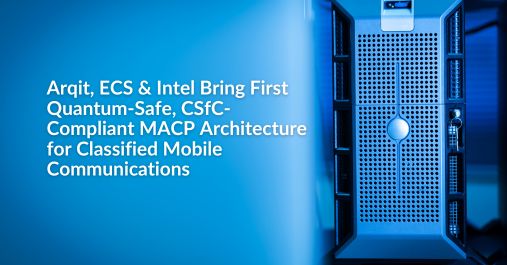[et_pb_section admin_label=”section”] [et_pb_row admin_label=”row”] [et_pb_column type=”4_4″][et_pb_text admin_label=”Text”]
It’s hard to browse any business content without quickly running into an AI topic. And for good reason. AI and data go hand in hand. Businesses are using their data to improve customer interactions, reduce business costs, and create new products.
Healthcare organizations are no different. Those that prioritize the patient experience improve patient outcomes and their bottom line. But healthcare leaders may wonder how AI actually fits into their business model and which applications are must-haves and which are nice to have.
In this article, we’ll consider four exciting AI applications in healthcare and the impact they can have on the organizations that adopt them.
AI Has the Potential To Make Healthcare Organizations More Responsive and Accurate
Speed and accuracy are essential to positive patient outcomes. AI speeds up key medical tasks and automates others. By providing fast, accurate, and efficient medical services, AI helps improve patient outcomes and the overall quality of healthcare services.
1. Improved medical imaging analysis. Using AI in medical imaging analysis transforms how medical professionals approach diagnostics and patient care. AI-powered algorithms process and analyze large volumes of complex imaging data with remarkable speed and accuracy — surpassing the capabilities of even trained human radiologists in some cases. By providing consistent interpretations, AI reduces variability that can arise from individual human judgments, resulting in more reliable diagnoses.
Additionally, AI can enhance imaging techniques, optimizing image acquisition and minimizing the need for contrast agents or radiation exposure. Furthermore, AI can seamlessly integrate medical imaging data with electronic health records, providing a more comprehensive understanding of a patient’s medical history.
2. Customer service chatbots/virtual health assistants. AI-powered chatbots enhance the patient experience and streamline processes. These chatbots can provide instant, personalized, and accurate responses to patient questions and concerns — reducing the need for time-consuming phone calls or in-person appointments when dealing with minor issues. They can also triage symptoms, helping to prioritize cases and determine whether a patient requires immediate medical attention or can be directed to less urgent care.
By automating routine tasks, AI chatbots free up healthcare professionals’ time so they can focus on more critical cases and provide better overall patient care. Furthermore, the availability of AI chatbots around the clock ensures patients have access to reliable healthcare support whenever needed.

3. Unstructured data. Managing unstructured health data (such as clinical notes, patient records, research papers, and other documents) poses a significant challenge in healthcare due to its volume, complexity, and variety. By employing natural language processing (NLP) techniques, AI can efficiently understand, interpret, and categorize unstructured text, enabling healthcare professionals to access relevant information more quickly and make better-informed decisions.
AI can identify patterns and relationships within unstructured data, uncovering previously unnoticed connections that could inform new treatments, diagnostics, and research. It’s also key to standardizing and integrating unstructured data with existing electronic health records to enhance the understanding of a patient’s medical history. Overall, using AI to manage unstructured health data streamlines workflows, promotes data-driven decision-making, and ultimately improves patient outcomes in the healthcare sector.
4. Improved healthcare access. AI can improve healthcare access by overcoming geographical, financial, and resource-related barriers that limit the availability of quality care. Telemedicine (enabled by AI-powered diagnostics) allows healthcare providers to offer medical services to patients in remote or underserved areas, reducing travel burdens and medical costs. Additionally, AI-powered medical image analysis and decision support systems can assist healthcare professionals in areas with limited access to specialized medical knowledge.
Boost Your Healthcare Organization’s AI Abilities With Habana Labs
AI performance directly impacts your data’s usefulness and your organization’s infrastructure costs. Habana Labs hardware accelerators significantly improve the efficiency and speed of AI workloads, benefiting healthcare organizations in several ways:
- Accelerated AI model training and inference. Habana’s Gaudi processor accelerates the training of deep learning models, while the Goya processor is optimized for inference tasks — reducing the time taken to train and deploy AI models in healthcare.
- Scalability. Habana Labs’ processors are designed to be scalable. Healthcare organizations can therefore handle increased AI workloads without compromising performance by incorporating multiple Gaudi or Goya processors into a single system.
- Energy efficiency. Habana Labs’ AI processors offer improved energy efficiency compared to traditional GPU-based solutions. As a result, healthcare organizations lower power consumption and reduce operating costs on tasks such as medical image analysis, drug discovery, and patient data analysis.
While you might be interested in improving AI performance, you may worry about the difficulty of using new technology. Habana Labs’ processors support popular AI frameworks such as TensorFlow and PyTorch, making it easier for healthcare organizations to integrate the hardware into their existing AI infrastructure. As a trusted partner, Equus can help you design custom-made Habana-powered hardware solutions to power your AI needs. Contact us to learn more.
[/et_pb_text][/et_pb_column] [/et_pb_row] [/et_pb_section]








